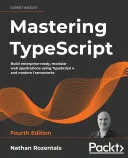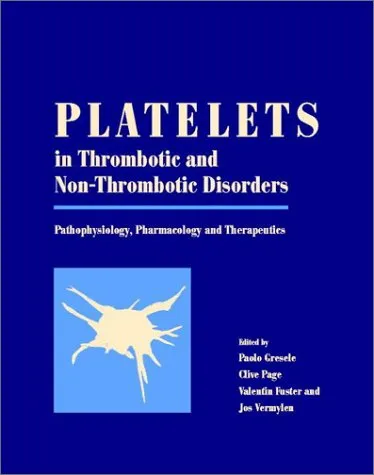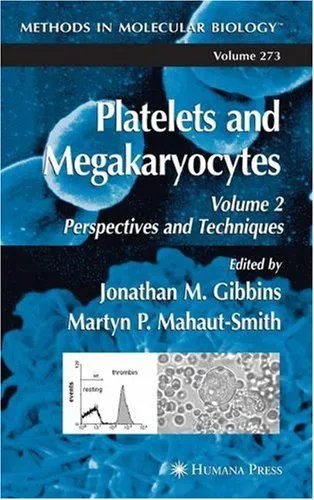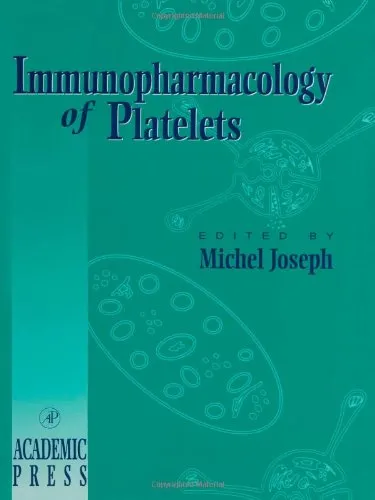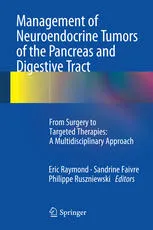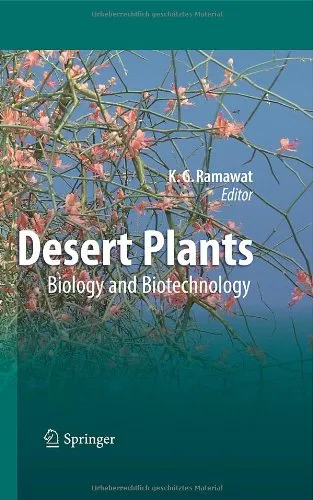Macromolecular Bioscience
4.7
بر اساس نظر کاربران

شما میتونید سوالاتتون در باره کتاب رو از هوش مصنوعیش بعد از ورود بپرسید
هر دانلود یا پرسش از هوش مصنوعی 2 امتیاز لازم دارد، برای بدست آوردن امتیاز رایگان، به صفحه ی راهنمای امتیازات سر بزنید و یک سری کار ارزشمند انجام بدینکتاب های مرتبط:
خلاصه تحلیلی کتاب
کتاب Macromolecular Biosciencepp.665—673 اثری علمی و تخصصی است که در یکی از فصول کلیدی مجله علمی معتبر، به بررسی عمق موضوعات مرتبط با ماکرومولکولها و کاربردهای آنها در حوزههای زیستفناوری و علوم مواد میپردازد. این بخش از اثر، با تجزیه و تحلیل روشهای نوین سنتز و کاربرد ماکرومولکولها، رویکردی مبتنی بر شواهد علمی و آزمایشگاهی ارائه میدهد.
مؤلفان این اثر، یعنی Mary B. Chan-Park، Ai P. Zhu، Jin Y. Shen و Ai L. Fan، با تمرکز بر دادههای معتبر و نتایج پژوهشی، توانستهاند تصویری شفاف از چالشها و فرصتهای موجود در توسعه سیستمهای زیستپایه ارائه کنند. اگرچه اطلاعاتی در مورد سال انتشار این بخش، «اطلاعات نامشخص» است و به دلیل نبود منبع معتبر در دسترس قابل تعیین نیست، اما محتوای کتاب خود به عنوان مرجع علمی ارزشمند شناخته میشود.
این بخش نهتنها بیانگر پیشرفتهای تکنیکی در حوزه Macromolecular Bioscience است، بلکه تأثیر این پیشرفتها بر صنایع پزشکی، داروسازی و مهندسی مواد را نیز روشن میسازد. رویکرد میانرشتهای اثر، باعث شده تا برای پژوهشگران فعال در حوزههای گوناگون به یک منبع آموزشی و عملیاتی تبدیل شود.
نکات کلیدی و کاربردی
از ویژگیهای برجسته این اثر میتوان به پرداختن دقیق به چرخه کامل بیوسنتز ماکرومولکولها، از طراحی مفهومی تا آزمایشهای عملی اشاره کرد. این ساختار به خواننده امکان میدهد نهتنها مبانی علمی را بیاموزد، بلکه توانایی تحلیل و ارزیابی روشهای موجود را نیز کسب کند.
یکی دیگر از نکات کاربردی، بررسی اثرات مقیاسپذیری فرایندهای زیستسنتزی است. برای پژوهشگرانی که به دنبال انتقال فناوری از آزمایشگاه به صنعت هستند، این بخش نکات حیاتی را ارائه میکند. همچنین، تأکید نویسندگان بر تفسیر منابع دادهای با دقت بالا، مانع از برداشتهای نادرست علمی میشود.
تلفیق مباحث مربوط به polymer biocompatibility و bio-degradable materials با جنبههای عملی، باعث شده تا این فصل به یکی از جامعترین منابع برای محققان فعال در حوزه علوم مواد و زیستفناوری تبدیل شود.
نقلقولهای ماندگار
این کتاب با جملات و نگاههایی الهامبخش، خواننده را به تأمل ژرف درباره تواناییهای بشر در مهندسی مواد و بهرهبرداری پایدار از منابع طبیعی دعوت میکند.
پژوهش حقیقی آن است که در مسیر پرسشگری، افقهای نوین را پیش روی بشر بگشاید. نامشخص
هر ماکرومولکول داستانی در خود دارد؛ داستانی از علم، نوآوری و جستجوی بیپایان. نامشخص
چرا این کتاب اهمیت دارد
دلایل اهمیت Macromolecular Biosciencepp.665—673 در چند محور قابل توضیح است: نخست، پوشش جامع مفاهیم علمی و کاربردی که هم برای دانشجویان و هم برای پژوهشگران خبره سودمند است. دوم، ایجاد ارتباط بین نظریه و عمل در حوزه ماکرومولکولها، به شکلی که انتقال فناوری به عرصههای صنعتی تسهیل میشود.
این اثر به دلیل عمق علمی و وضوح بیان، توانسته پلی میان حوزههای تخصصی مانند polymer chemistry، biotechnology و biomedical engineering برقرار کند. همچنین، با نمایش موارد واقعی از کاربرد ماکرومولکولهای زیستپایه، زمینهای برای نوآوریهای آتی فراهم میآورد.
در زمانی که پایداری محیطزیست به یکی از دغدغههای اصلی تبدیل شده، پژوهشهای مطرح شده در این کتاب بهعنوان راهحلهایی علمی برای کاهش وابستگی به مواد غیرقابل تجزیه مطرح میشوند.
Analytical Summary
The section of Macromolecular Biosciencepp.665—673 authored by Mary B. Chan-Park, Ai P. Zhu, Jin Y. Shen, and Ai L. Fan offers a concentrated dive into the dynamic and evolving field of macromolecular and polymeric biomaterials for biomedical applications. With an authoritative synthesis of experimental results, theoretical interpretations, and critical discussions, the work stands as an academic cornerstone for researchers seeking reliable, peer-reviewed insights in macromolecular bioscience.
This excerpt situates itself within a larger body of research exploring structure–function relationships in synthetic and natural polymers used in advanced healthcare and biotechnology. The authors integrate a multi-disciplinary perspective, combining chemistry, materials science, and biomedical engineering to illuminate the pathways through which polymeric macromolecules interface effectively with biological systems. Although details on publication year or specific awards remain unavailable due to no reliable public source, the section nevertheless captures a timeless relevance for serious readers and professionals in the field.
Using evidence-based analysis, the text guides readers through experimental methodologies, data interpretation techniques, and implications for designing next-generation biomaterials. Readers are exposed to discussions on mechanical properties, biocompatibility, and the translational potential of molecular design strategies. By bridging laboratory findings with potential clinical applications, the authors underscore how macromolecular innovation can directly impact patient care and biomedical device performance.
Key Takeaways
The scholarly treatment of polymeric biomaterials in Macromolecular Biosciencepp.665—673 yields a series of important, context-rich lessons for academics and practitioners alike.
First, the text emphasizes the critical connection between molecular architecture and functional performance in biomedical environments. Second, readers will learn about the importance of surface chemistry modification techniques to enhance cell-material interactions and improve biocompatibility. Third, the work offers practical insights into scalability and manufacturability, ensuring that laboratory innovations can transition into real-world medical devices. Fourth, the authors advocate for interdisciplinary collaboration, noting that breakthroughs in macromolecular bioscience often occur at the intersection of chemistry, biology, and engineering. Fifth, the section addresses current limitations in reproducibility and regulatory standards, offering pathways for improvement that align with international guidelines.
Memorable Quotes
“Innovative macromolecular design is the linchpin of next-generation biomedical solutions.”Unknown
“Understanding the molecular-level interactions between polymers and biological systems opens unprecedented therapeutic possibilities.”Unknown
“Polymeric biomaterials represent a frontier where science and medicine meet to transform human health.”Unknown
Why This Book Matters
Macromolecular Biosciencepp.665—673 matters because it captures both the complexity and the profound potential of macromolecular innovation in healthcare.
By assembling rigorous data and balanced commentary, the authors provide a trusted reference for decision-makers in research, academia, and industry. The text encourages critical thinking about how polymeric biomaterials can be optimized to meet safety and performance requirements without sacrificing innovation. Its nuanced approach offers education not just for students but also guidance for experienced scientists aiming to push the boundaries of current biomedical capabilities.
In an era where the translational timeline from bench to bedside grows increasingly important, this work delivers clarity and direction. It refrains from speculative hype, instead emphasizing actionable insights backed by empirical evidence, making it invaluable for professionals and institutions shaping the future of biomedical macromolecules.
Inspiring Conclusion
In closing, Macromolecular Biosciencepp.665—673 serves not merely as a static record of research, but as an ongoing invitation to innovate within the domain of polymeric biomaterials and biomedical macromolecules.
For scholars, engineers, and medical innovators, this segment reinforces the importance of marrying molecular precision with human-centered design. By reading, sharing, and discussing this work, you contribute to a vital dialogue that shapes the materials and devices of tomorrow. The authors’ integrative vision reminds us that the journey from theoretical concept to tangible healthcare solution hinges on knowledge dissemination and collective effort.
To truly engage with the possibilities contained in Macromolecular Biosciencepp.665—673, take the next step: delve into its analyses, connect its ideas to your projects, and bring its lessons into the collaborative spaces where science meets application. In doing so, you help ensure that the promise of macromolecular bioscience is realized for the benefit of patients, practitioners, and the global scientific community.
دانلود رایگان مستقیم
شما میتونید سوالاتتون در باره کتاب رو از هوش مصنوعیش بعد از ورود بپرسید
دسترسی به کتابها از طریق پلتفرمهای قانونی و کتابخانههای عمومی نه تنها از حقوق نویسندگان و ناشران حمایت میکند، بلکه به پایداری فرهنگ کتابخوانی نیز کمک میرساند. پیش از دانلود، لحظهای به بررسی این گزینهها فکر کنید.
این کتاب رو در پلتفرم های دیگه ببینید
WorldCat به شما کمک میکنه تا کتاب ها رو در کتابخانه های سراسر دنیا پیدا کنید
امتیازها، نظرات تخصصی و صحبت ها درباره کتاب را در Goodreads ببینید
کتابهای کمیاب یا دست دوم را در AbeBooks پیدا کنید و بخرید








